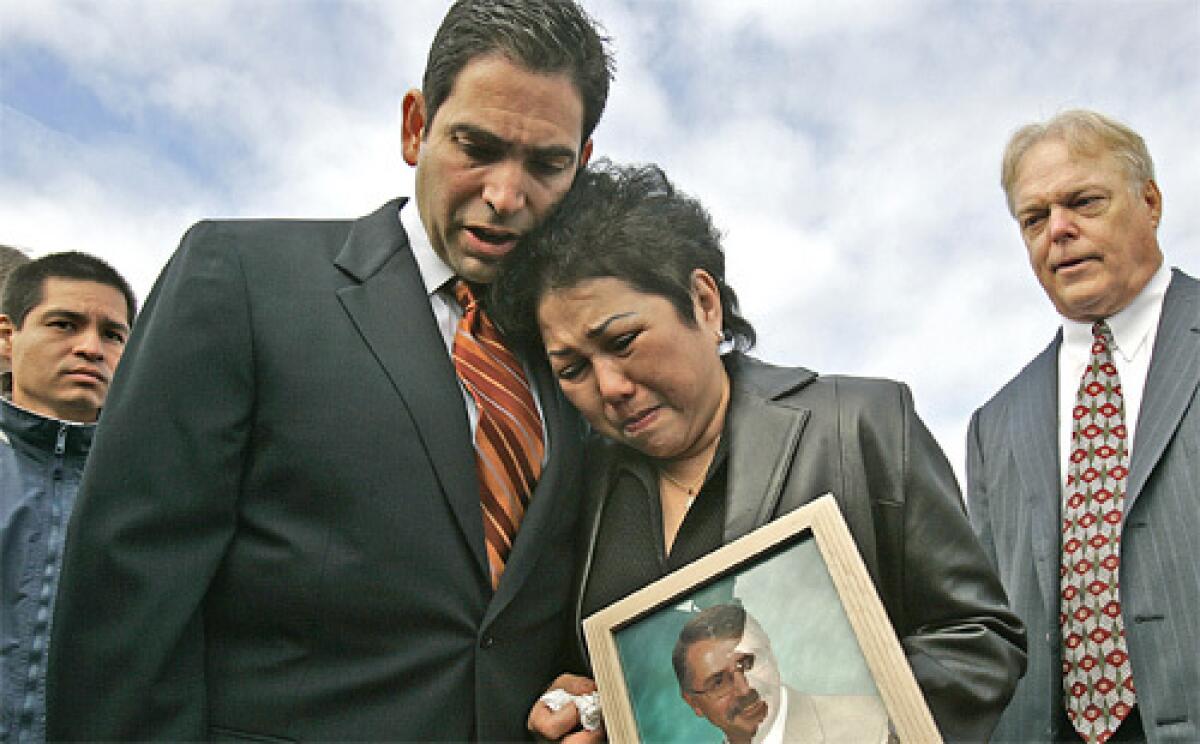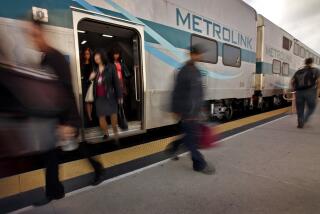State rail safety role questioned

- Share via
California officials lack the authority to determine whether Metrolink was partly responsible for the deaths of 11 people in a commuter train crash in 2005, lawyers for the transit service argued Tuesday.
Facing skeptical state judges in Los Angeles, Metrolink lawyers argued that federal railroad regulations ban most attempts by California to improve commuter rail safety. Only the federal government can do that, lawyers for Metrolink argued.
FOR THE RECORD:
Metrolink crash: An article in Wednesday’s California section concerning the extent to which Metrolink can be held responsible for the 2005 commuter train crash that killed 11 in Glendale described the car leading the train as a club car. It was a cab car. —
At issue is the extent to which the transit service can be held responsible for the Glendale crash on Jan. 26, 2005, that killed 11 people and injured more than 180.
Lawyers for the victims assert that none of the deaths would have occurred if Metrolink had focused on passenger safety and pulled its trains with 140-ton locomotives. In this case, an SUV left on the tracks by a man allegedly trying to commit suicide would have been swept from the tracks with no injuries, the victims contend.
Instead the train was pushed by a locomotive, causing the quick derailment of a leading lightweight club car, triggering a collision with a freight train that jackknifed the passenger train into the path of an oncoming commuter train.
Metrolink lawyer William Ballaine argued that California officials were forbidden from challenging the transit service on safety questions -- an argument they have already lost at the trial court level.
Aside from compensating victims, who each received $113,000 to date from a state compensation fund, the case again presents the issue of whether nationwide federal regulations of railroads trump the power of California courts to decide whether the transit service has been careless about commuter safety.
“This track could have been protected,” said Jerome L. Ringler, representing the victims. Ringler argued that it was the duty of the state to take actions to ensure commuter safety that are not incompatible with federal regulations.
Ballaine said California courts must “defer to the federal regulators to make intelligent decisions.” Otherwise, he said, “you’re letting juries all across the country make their own independent judgments on safety.”
In court papers, the victims argued that studies “clearly establish a significantly greater likelihood of derailments, deaths and injuries when a cab car is at the leading end of a train than when a locomotive is at the leading end.”
Ringler has argued that Metrolink should have used a heavier “cabbage” car to lead the train, which Amtrak routinely uses. Such cars are fitted with extra weight to approximate that of a full locomotive, providing enough heft to avoid derailment in most accidents.
The case was heard by a panel of justices including Richard D. Aldrich, who at several points questioned how vigorously federal rail safety officials have acted.
Ballaine at one point said that the Federal Railroad Administration is continuing to assess safety on commuter lines and may make more rules.
Aldrich said federal law allows states to regulate train safety when faced with a local safety hazard, which a judge has already ruled is the case.
Ballaine called the decision, which Metrolink is appealing, “a grievous error.”
More to Read
Sign up for Essential California
The most important California stories and recommendations in your inbox every morning.
You may occasionally receive promotional content from the Los Angeles Times.













